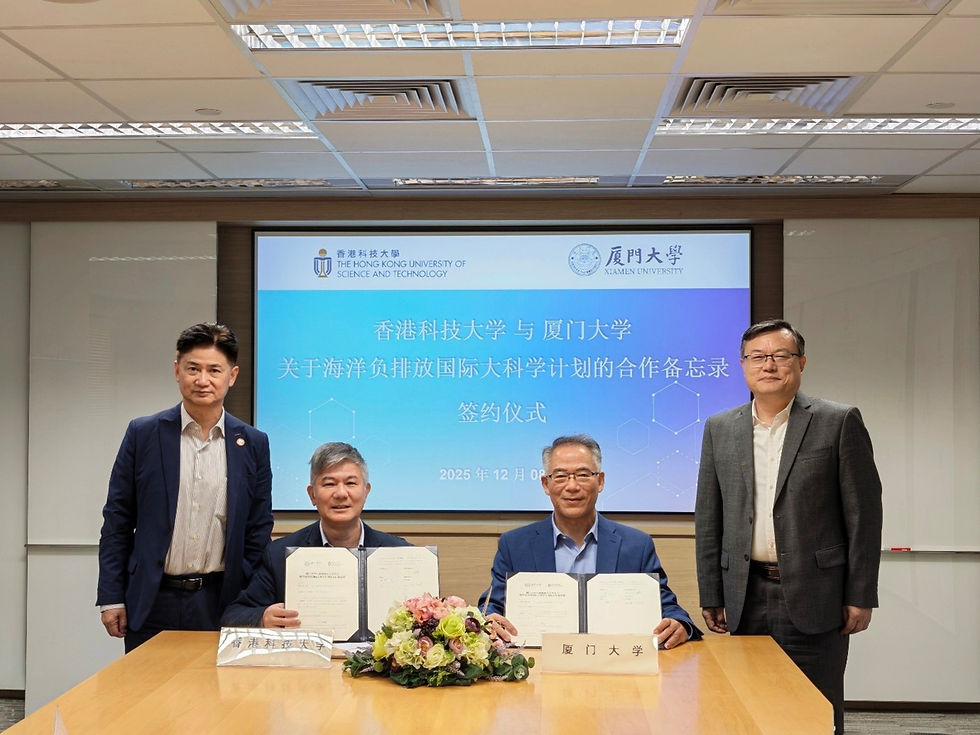[Summer Course!] Climate Change and Marine Ecosystems with Croucher Foundation
- Plankton Lab Hong Kong

- Jan 27, 2023
- 2 min read
Updated: Apr 3, 2023
Course Title: Climate Change and Marine Ecosystems
Program Period: 12-17 June 2023

Summary
This five-day summer course aims to provide students with a systematic and comprehensive overview of the impact of global climate change on ocean ecosystems, with a particular focus on the newly developed ecological models that utilize new ecological theory and big data AI technologies to understand the ecological processes from cellular to ecosystem scales.
About
Oceans play a vital role in the global carbon cycle by acting as a sink for the increase in atmospheric CO2 from fossil fuel burning and other processes. Notably, the ‘biological pump’, the suite of processes by which some of the carbon taken up by phytoplankton in surface waters is transferred to and stored in the deep ocean, reduces atmospheric CO2 by 200 ppm relative to what it would be with an abiotic ocean.
Rising air and ocean temperatures due to the well-known greenhouse effect produce a warmer and more-stratified upper ocean, which reduces nutrient mixing into the surface and the downward transport of oxygen to deeper water. Warming can also directly affect the metabolism and physiology of marine organisms and the integrity and function of marine ecosystems. All these climate change impacts have direct ramifications for the ocean’s functionality in making planet earth habitable and the economic value of ocean ecosystems.
Summer courses in this series have been taught every other year since 2013, generally emphasizing climate impacts on the structure and functioning of marine microbial communities. The 2023 course will focus on ecological modeling. The course lecturers have broad combined expertise in developing and applying various types of models - theoretical, statistical, mechanistic, and numerical - to simulate and predict responses of marine organisms and ecosystems to changing ocean conditions. Participants can expect daily lectures, supplemented by workshops, tutorials, poster sessions, and hands-on computer programing. With a small class size and multiple instructors, the course places special emphasis on student-faculty interactions.
The course is limited to 30 postgraduate or early career participants and will be conducted in English.

Director
Prof. Hongbin Liu (Hong Kong University of Science and Technology, HK, China)
Co-director
Prof. Michael Landry (the University of California, San Diego, USA)
Instructors
Prof. Bingzhang Chen (University of Strathclyde, UK)
Prof. Andrew Irwin (Dalhousie University, Canada)
Prof. Edward Laws (Louisiana State University, USA)
Prof. Michael Stukel (Florida State University, USA)
Prof. Sergio Vallina, (CSIC, Spain)
Applications
The official announcement page is here.
When open, the deadline will be 5 p.m. on 30th April.
Fees
Residential places on the HKUST campus and meal coupons will be provided during the course period.
Travel grants OR registration fee waivers are available for application upon the course director's approval. Please email marinesc@ust.hk for more details.
A registration fee of HKD3000 will be charged upon successful application.
Visa/Master card, cheque, wire transfer/TT, and direct payment through Hang Seng Bank are accepted for the payment.








Comments